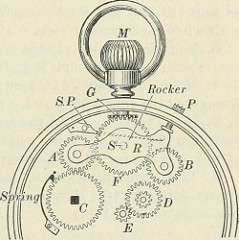Physical Fitness & You

Physical fitness is to the human body what fine-tuning is to an engine. It is not a race, it’s a pursuit. In its most general meaning, physical fitness is a general state of good physical health. It is a foundation for a long and successful life.
Physical fitness is usually measured by periodic tests measuring strength, endurance, agility, coordination, and flexibility. Physical fitness is the capacity of the heart, blood vessels, lungs, and muscles to function at optimum efficiency. It has two meanings – General fitness (a state of health and well-being) and specific fitness (the ability to perform specific aspects of sports or occupations). Physical Fitness is important, even on bed rest.
A general-purpose physical fitness program must address the following essentials: Cardiovascular Fitness: It is the ability of the circulatory and respiratory systems to supply oxygen to muscles during continuing physical activity. Regular exercises enable more blood to be pumped with each stroke of heart.
Flexibility Training: Stretching increases the range of motion of a joint. It improves suppleness.
Strength Training: Strength training is the use of resistance to muscular contraction to build the strength andsize of skeletal muscles.
Muscular Endurance: Endurance is the ability to exert for a long period of time. In humans, it is usually used in aerobic and anaerobic exercises.
Body Composition: In physical fitness, body composition is used to describe the percentages of fat, bone, and muscle in human bodies.
Fitness
Fitness, most importantly cardio-respiratory fitness, has been directly correlated to the mortality rate. Fitness can be described as a condition that helps us look, feel, and do our best. In previous years, fitness was commonly defined as the capacity to carry out the day’s activities without undue fatigue. These days, physical fitness is considered a measure of the body’s ability to function efficiently and effectively in work and leisure activities, to be healthy, to resist diseases, and to meet emergency situations. Many sources also cite mental and emotional health as an important part of overall fitness. This is often presented in textbooks as a triangle made up of three sub-sections, which represent physical, emotional, and mental fitness.
Physical fitness involves the performance of the heart, lungs, and muscles. And, since what we do with our bodies also affects what we can do with our minds, fitness influences to some degree qualities such as mental alertness and emotional stability.
People normally prefer walking for fitness activities followed in order by: swimming, fishing, bicycle riding, camping, golf, bowling, exercise equipment, hiking, hunting, aerobics, calisthenics, jogging, and tennis. Women prefer fitness-related activities and men prefer outdoor sports.
The top level of physical fitness tends to mesh physiology and psychology. The exercises improve function of the muscular and skeletal systems, enhance circulation, augment energy and elevate overall individual levels of fitness. The level of physical fitness can be influenced by regular, systematic exercise.
As energy depends on nutrition, proper nutrition is important to physical fitness. If diet is not adequate, the fitness level will drop. Overweight, underweight, and weak individuals will have below average fitness levels.
Exercises
Exercise that doesn’t raise your heart rate to a certain level and keep it there for 20 minutes won’t contribute significantly to cardiovascular fitness. It is better to select exercises that involve total body involvement. Such exercises improve and maintain fitness most effectively — e.g. Running, swimming, golf, dancing, cycling, and brisk walking. The correct exercises will help you decrease body fat and increase or maintain muscle mass. By performing many different exercises for a low number of repetitions, the muscles are strengthened, elongated and toned without creating bulk. Total concentration on the body during each exercise emphasizes movement quality, coordination and breath.
Health
Healthy people have more active and more interesting life. Physical fitness can also prevent or treat many chronic health conditions brought on by unhealthy lifestyle or aging. To stay healthy it’s important to participate in physical activity. Even those of us who haven’t always led active lifestyles, increasing our physical activity now will help us live longer & healthier lives.
To live a full and healthy life, exercise must be a part of it. It is the ability to endure, to bear up, to withstand stress, to carry on in circumstances where an unfit person could not continue, and it is a major basis for good health and well-being. A physically fit body has less chance of acute health problems and chronic disease.
Major Benefits of Physical Fitness
1. Reduce chance of heart attack and stroke
2. Reduce the chances of developing adult onset diabetes
3. reduced chance of being overweight
4. Being able to efficiently manage stress
5. More energy
Pradeep Mahajan — Author is a free-lance writer. He is an engineer-MBA and management consultant by profession & practice. Visit http://www.health-fitness-wellness.com for more useful & interesting information on health, fitness & wellness.
